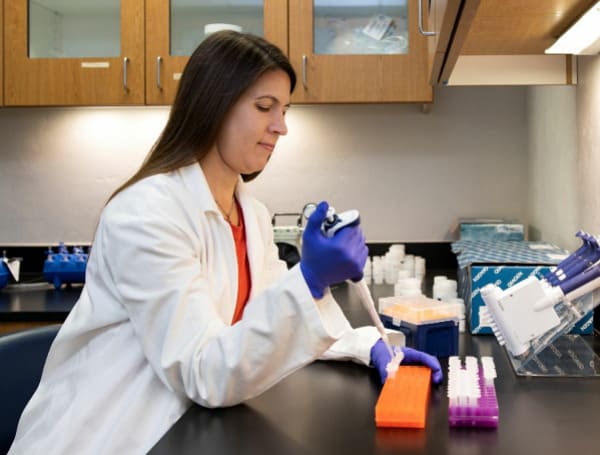Soil health is an important aspect to strawberry and tomato production. Farmers often apply a type of pesticide called fumigants to the soil months before planting to manage soil health.
Fumigants reduce harmful diseases such as Fusarium wilt, pests such as root-knot nematodes, and weeds that compete for water and nutrients. While these fumigants are not present in the soils once the crops are planted, their effects on soil diseases, pests and weeds help sustain production.
But how does all that happen? There’s so much underground. A teaspoon of soil can contain more than 4 billion microbial organisms, including bacteria, fungi, protozoa, and nematodes
University of Florida soil microbiologist Sarah Strauss has received an $850,000 grant from the U.S. Department of Agriculture National Institute of Food and Agriculture grant to study how fumigation impacts the soil microbiome. Armed with such data, farmers can manage soil health more efficiently.
“We know that fumigants are pretty good at reducing the ‘bad’ soil microbes – the ones that cause diseases,” said Strauss, an assistant professor of soil and water sciences at the UF/IFAS Southwest Florida Research and Education Center.

“We don’t really know what happens to all the other microbes in the soil when these fumigants are applied,” Strauss said. “But since the fumigants hurt the pathogens – the ‘bad microbes’ — they might hurt the other microbes. These other microbes include ones that could be helpful for plants.”
For example, soil bacteria and fungi help nitrogen cycle through soil and prevent soil-borne diseases from infecting plants. Soil fumigants also seem to impact weed germination, but scientists don’t know much about how fumigants impact weed populations over multiple growing seasons.
“We want to try and figure out if the ‘good’ soil microbes are still around after fumigation and are helping this process — or not,” said Strauss. “We need to better understand what’s happening in the soil before we can try and optimize or improve these fumigation practices.”
The more data Strauss and her colleagues can pass along to farmers about soil fumigation, the better the odds producers will grow more tomatoes and strawberries.
Strauss will get help on this research project from Nathan Boyd, a professor of horticultural sciences; Gary Vallad, a professor of plant pathology and Mary Lusk, an assistant professor of soil and water sciences – of whom work at the Gulf Coast Research and Education Center (GCREC).
They’ll conduct their research at GCREC and at commercial tomato and strawberry farms, most likely in Hillsborough County, the home of many Florida strawberry farms.
Throughout Florida, fresh market tomatoes generate about $400 million a year, while strawberries, bring in about $300 million.
Visit Tampafp.com for Politics, Tampa Area Local News, Sports, and National Headlines. Support journalism by clicking here to our GiveSendGo or sign up for our free newsletter by clicking here.
Android Users, Click Here To Download The Free Press App And Never Miss A Story. Follow Us On Facebook Here Or Twitter Here.


